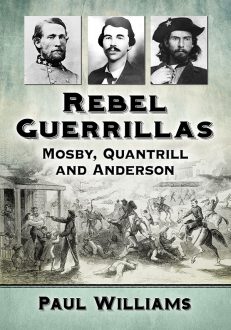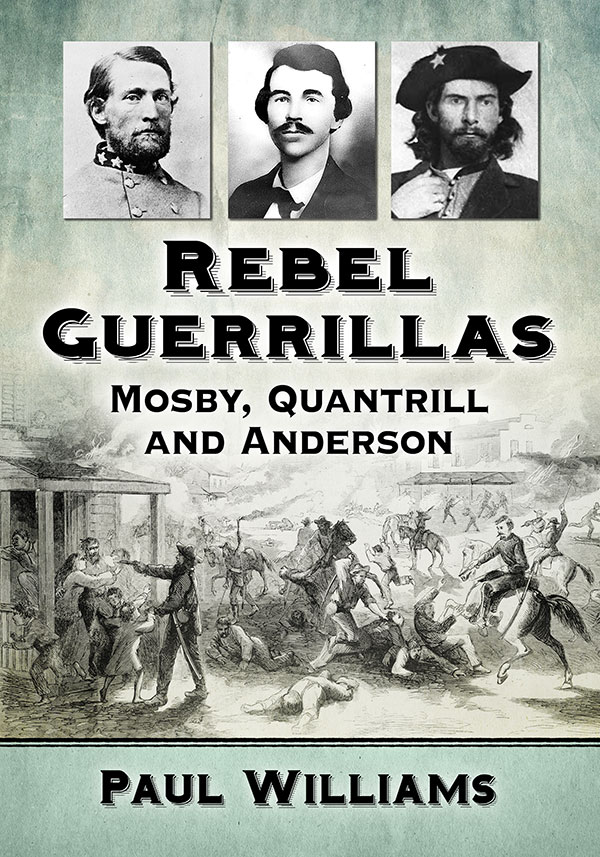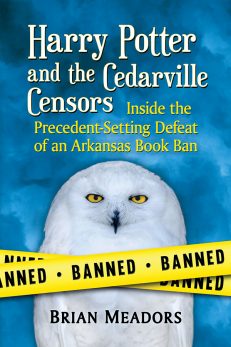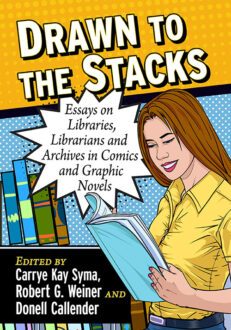Subtotal: $39.95
Rebel Guerrillas
Mosby, Quantrill and Anderson
$39.95
In stock
About the Book
From the hills and valleys of the eastern Confederate states to the sun-drenched plains of Missouri and “Bleeding Kansas,” a vicious, clandestine war was fought behind the big-battle clashes of the American Civil War. In the east, John Singleton Mosby became renowned for the daring hit-and-run tactics of his rebel horsemen. Here a relatively civilized war was fought; women and children usually left with a roof over their heads. But along the Kansas-Missouri border it was a far more brutal clash; no quarter given. William Clarke Quantrill and William “Bloody Bill” Anderson became notorious for their savagery.
About the Author(s)
Bibliographic Details
Paul Williams
Format: softcover (7 x 10)
Pages: 221
Bibliographic Info: 28 photos, maps, notes, bibliography, index
Copyright Date: 2019
pISBN: 978-1-4766-7573-2
eISBN: 978-1-4766-3410-4
Imprint: McFarland
Table of Contents
Prologue 1
1. “A well-marked passion to fight”: Mosby, 1833–1854 3
2. Lawrence, 1856 9
3. “It means bloody war”: Mosby, 1854–1861 18
4. “Bleeding Kansas”: Quantrill, 1837–1861 24
5. “An opportunity to strike”: Mosby, 1861–1862 36
6. “Cutthroats are coming!” Quantrill, 1861–1862 46
7. “Gratification at my success”: Mosby, 1862 59
8. “There would be no prisoners”: Quantrill, 1862 66
9. “A prize in the lottery of life”: Mosby, 1863 75
10. “We’ll descend like thunderbolts”: Quantrill and Anderson, 1863–1864 101
11. “An honorable foe”: Mosby, 1863–1864 122
12. “I will kill you for being fools”: Quantrill and Anderson, 1864 129
13. “Wipe Blazer out”: Mosby, 1864 143
14. “The optics of the dead”: Anderson, October 1864 168
15. “Unconquered”: Mosby, 1865 174
16. “Dark clouds are above me”: Quantrill, 1864–1865 181
17. “The South was my country”: Mosby, 1865–1916 190
Chapter Notes 197
Bibliography 204
Index 209

 Rebel Guerrillas
Rebel Guerrillas 



